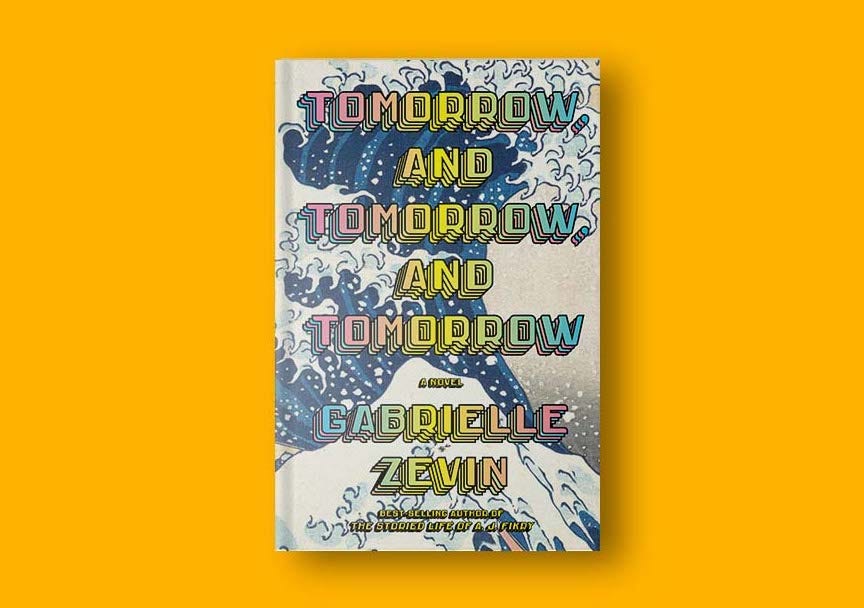Tomorrow, and Tomorrow, and Tomorrow
Time for some summer reading: A novel about friendship, creativity, and the video games we build.
Some books stay with you because of what they make you think. Others, because of how they make you feel. Gabrielle Zevin’s Tomorrow, and Tomorrow, and Tomorrow does both. It’s a novel about video games, yes — but much more than that, it’s a novel about friendship, creativity, ambition, love, and loss. It’s also one of the most enjoyable and quietly profound books I’ve read in recent years — and one I think many people would love, even if they don’t normally pick up novels.
The story follows Sam Masur and Sadie Green, two brilliant but very different friends who first meet as children in a hospital game room. Years later, they reconnect as college students in Boston and begin making video games together. What follows is a sweeping story that spans three decades of their partnership, charting their creative highs, personal conflicts, heartbreaks, and enduring connection.
Zevin’s writing is warm, clever, and deeply empathetic. The book captures both the intensity and fragility of creative collaboration: how thrilling it can be to make something with someone else, and how painful it can be when that collaboration falters. Sam and Sadie’s friendship is at the center of the book, and it’s wonderfully complicated: sometimes nurturing, sometimes competitive, always real.
One of the things I loved most is how the novel treats play, not as something trivial, but as something meaningful and essential. In a world obsessed with productivity, efficiency, and outcomes, this is a story that values imagination, creativity, and the deep human need for play. The games Sam and Sadie create aren’t just entertainment; they’re expressions of longing, grief, joy, and the search for connection. In that sense, Tomorrow, and Tomorrow, and Tomorrow is very much a novel about art — about what it means to build worlds for other people to enter, and what those worlds can give back to us.
There’s also a thoughtful exploration of the nature of storytelling in digital spaces. The book moves seamlessly between the characters’ real lives and the virtual lives they create in their games, reminding us that digital spaces are not separate from the "real world" — they are part of how we experience and understand life today. For those of us who spend a considerable amount of time thinking about technology and society, this is a gentle yet insightful meditation on how digital creativity shapes us.
And beyond all that, it’s simply a joy to read. I couldn’t put it down once I started. The writing is clear and engaging. The characters feel alive. The dialogue sparkles. The Shakespearean title — drawn from Macbeth — adds a beautiful layer of reflection on time, mortality, and the relentless drive to create.
I’d say this is a perfect book for the summer. It’s light enough to read on vacation, yet thoughtful enough to leave you with plenty to ponder. And it’s exactly the kind of book I love recommending to friends who say they "don’t usually read much fiction" — because it speaks so directly to our shared experiences of friendship, creativity, and the desire to build something that lasts. And for those loving video games, this book could be the perfect entry into the world of reading.
For anyone who works in tech, digital culture, or creative fields, I think the novel also resonates on a deeper level. It reminds us that while technology moves fast, human stories — of love, ambition, loss, and connection — remain timeless. And sometimes, the most enduring things we build aren’t the games or the code, but the relationships and meanings behind them.
In short: highly recommended. And if you do read it, I’d love to hear your thoughts.


